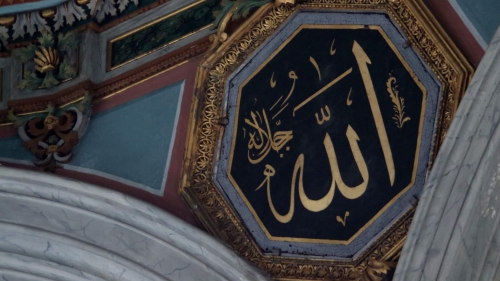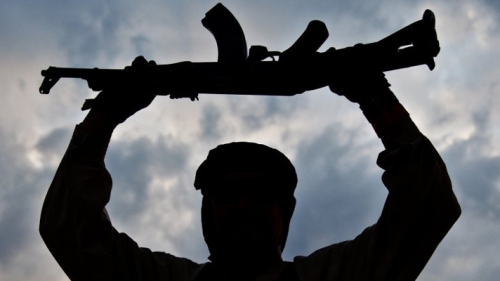The crises of the Holy
 |
As different faith communities struggle with similar problems caused by the increasing secularization of society, including increasing disillusion among young people, Muslim leaders will be joining counterparts from other faiths to explore how to respond to the crisis. In its most extreme form, this is manifested in rising numbers of teen suicides in many countries. In the United States, for example, suicide is the third largest cause of death for 15-to-24-year-olds, and in England, two people in this age group commit suicide each day. As far afield as Finland and Norway, Australia and New Zealand, Taiwan and Japan, teachers and social workers are also reporting increasing numbers of young people taking their own lives.
In response to this very worrying worldwide trend, the Elijah Interfaith Institute surveyed religious leaders with a written questionnaire to assess the level of awareness of the problem of youth suicide and to start to find strategic solutions to tackle this growing international crisis. The results of their survey will be presented and discussed at the second meeting of Elijah's Board of World Religious Leaders in Taiwan next week (November 28 to December 1, 2005).
More than 50 religious leaders from around the world, representing different streams of thinking within Islam, Christianity, Buddhism, Hinduism, and Judaism, will be meeting at the Museum of World Religions in Taipei, to explore solutions that can be found within each faith to this and other contemporary issues facing all world religions.
Says Alon Goshen Gottstein: "Globalization trends, population and economic pressures, the breakdown of families, social alienation and lack of sustaining human relationships have all contributed to young people lacking a sense of meaning and purpose in life. We hope that our worldwide network of religious leaders will be able to work together at the Conference to coordinate responses to the increasing secularization of society and develop strategic solutions for dealing with the serious issue of youth suicide."
Religious leaders responding to Elijah's survey on youth suicide have indicated that believers are obliged to accept special responsibility for those in need of help. According to Dr. Mustafa Ceric, Grand Mufti of Bosnia, it is noticeable that in areas where there are fewer or no mosques, the suicide rate is higher. In the post-war years of reconstruction, the Islamic Council of Bosnia-Herzegovina is committing itself to providing rehabilitation for drug-users and, encouraged by this Elijah Interfaith Institute project, is currently initiating discussions on the suicide issue. The creation of opportunities for community and hospitality are just some of the ways in which religious faiths can help prevent those who are despairing from contemplating suicide.
The Taiwan Conference participants will also address the underlying crisis of faith in religion and religious leaders, which is being seen in many different societies, with sessions on strategic problem-solving and networking to understand how each religion can utilize its own strengths to provide leadership, to maintain authority, and to properly serve society. The conference will also launch Elijah's Rapid Response Process, which will create an infrastructure through which the leaders of the main world religions can respond immediately to international issues and crises as they arise, and the meeting will discuss the formation of an inter-religious university.
The Muslim world will be represented by a cross-section of influential community leaders from Africa, America and Europe, including Dr. Mustafa Ceric, Grand Mufti and Raisu-l-Ulama of the Islamic Community in Bosnia and Herzegovina; Sheikh Muhammad Nur Abdallah, President of the Islamic Society of North America; Dr. Adamou Ndam Njoya, Minister Plenipotentiary in the government of Cameroon and President of the Cameroon Democratic Union political party; Dr. Y. Mossa Basha, Chairman of the Muslim American Coalition; Yousif al-Kohei and Nadeem Kazmi of the UK-based Al-Khoei Foundation; and Ahmed Abbadi, Director of Islamic Affairs in Morocco. The other faith leaders will include senior Buddhists, Christian Archbishops, Patriarchs and Cardinals, Hindu Swamis, Chief Rabbis, and representatives of the Sikh and Jain faiths.
It is hoped that these religious leaders will be able to demonstrate that the world's great religions have many ideas in common and much to share, and that once inter-religious conflicts are set aside, all can benefit from their cooperation on issues of common concern.
For more information about this conference please visit www.elijahinterfaith.org











